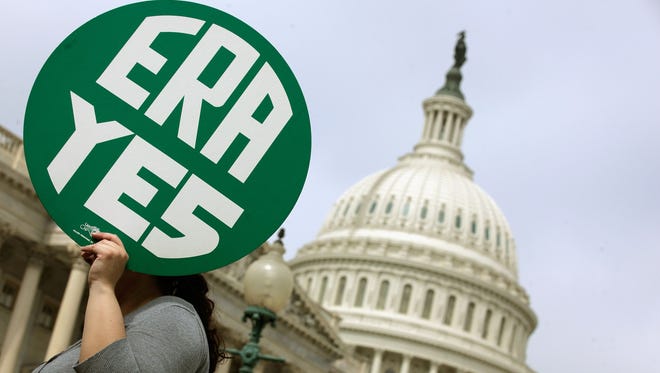'Our community is bleeding': Asian American lawmakers say violence has reached 'crisis point'
Lauren Gambino in Washington
Thu, March 18, 2021,

Photograph: Shannon Stapleton/Reuters
Asian American lawmakers and leaders warned that violence and discrimination targeting their community have reached a “crisis point” following the shootings in Atlanta this week that killed eight people, including six women of Asian descent.
The hearing, the first to examine anti-Asian discrimination in more than three decades, had been scheduled weeks ago amid a surge in violence against the Asian community since the pandemic began. But it took on heightened urgency after the mass shooting that left Asian Americans in Atlanta and across the country shaken and afraid.
“What we know is that this day was coming,” Judy Chu, chair of the Congressional Asian Pacific American Caucus, told a subcommittee of the House judiciary committee on Thursday. “The Asian American community has reached a crisis point that cannot be ignored.”

Judy Chu, chair of the Congressional Asian Pacific American Caucus.
Grace Meng, a Democrat of New York, said: “Our community is bleeding. We are in pain. And for the last year, we’ve been screaming out for help.”
Meanwhile police in Atlanta revealed new details about the investigation. At a press conference, Charles Hampton, deputy chief of the Atlanta police, said “nothing was off the table”, including whether the killings were motivated, at least in part, by race or gender.
Related: FBI under pressure to tackle anti-Asian hate crime in wake of Atlanta shootings
“We are looking at everything to make sure that we discover and determine what the motive of our homicides were,” he said, adding that they were still determining whether the murders constituted a hate crime.
The suspect, Robert Aaron Long, 21, has been charged with eight counts of murder. Long, who is white, told police that he had a sex addiction and targeted the spas to eliminate “temptation”, denying any racist motivations.
Hampton said on Thursday that Long had “frequented” two of the spas where four women of Asian descent were killed. Four more people were killed at Youngs Asian Massage Parlor, on the outskirts of the city.
The Cherokee county sheriff’s department announced on Thursday that Capt Jay Baker had been replaced as the spokesman on the investigation.
Frank Reynolds, the sheriff, expressed regret amid widespread outrage over comments Baker had made a day earlier. Baker drew criticism for saying Long had had “a really bad day” and “this is what he did”. Reynolds released a statement on Thursday acknowledging that some of Baker’s comments stirred “much debate and anger” and said the agency regretted any “heartache” caused by his words.
“Inasmuch as his words were taken or construed as insensitive or inappropriate, they were not intended to disrespect any of the victims, the gravity of this tragedy or express empathy or sympathy for the suspect,” Reynolds said in a statement, adding that Baker “had a difficult task before him, and this was one of the hardest in his 28 years in law enforcement”.
In response to the shootings, the White House announced that Joe Biden and Kamala Harris were canceling a political event in Atlanta on Friday as part of their Help is Here tour to promote the administration’s $1.9tn coronavirus relief package. Instead, they will spend their visit meeting with local leaders and elected officials from the city’s Asian American and Pacific Islander community.
Biden on Thursday ordered flags at the White House and all federal buildings to be flown at half-staff through sunset on Monday to honor the eight victims of the Atlanta spa shootings.
At the hearing on Capitol Hill, Meng was joined by experts and advocates who told the panel that the rising tide of anti-Asian bigotry was fueled in part by rhetoric from Donald Trump and his allies, who referred to Covid-19 as the “China virus” the “China plague” and the “kung flu”.

A student holds a sign at the We Are Not Silent rally organized by the Asian American Pacific Islander (AAPI) Coalition Against Hate and Bias in Bellevue, Washington, on Thursday. Photograph: Jason Redmond/AFP/Getty Images
Nearly 3,800 hate incidents, spanning the spectrum of verbal harassment to physical assault, have been reported against Asian Americans nationwide since the start of the pandemic in March 2020, according to Stop AAPI Hate. Asian American women reported nearly twice as many incidents as men, at nearly 70%.
During the hearing, the subcommittee chairman, Steve Cohen, recounted a number of brutal incidents that included a Filipino man being slashed across the face with a box cutter and an 89-year-old Asian American woman being lit on fire.
“All the pandemic did was exacerbate latent anti-Asian prejudices that have a long, long and ugly history in America,” he said.
In a particularly impassioned exchange, Meng confronted one of the panel’s Republican members, the Texas congressman Chip Roy, who said, after a lengthy exhortation of China’s handling of the coronavirus, that he was concerned the hearing amounted to a “policing” of free speech.
“Your president and your party and your colleagues can talk about issues with any other country that you want,” Meng said through tears. “But you don’t have to do it by putting a bullseye on the back of Asian Americans across this country, on our grandparents, on our kids.”
“This hearing was to address the hurt and pain of our community, to find solutions – and we will not let you take our voice away from us,” she said.














